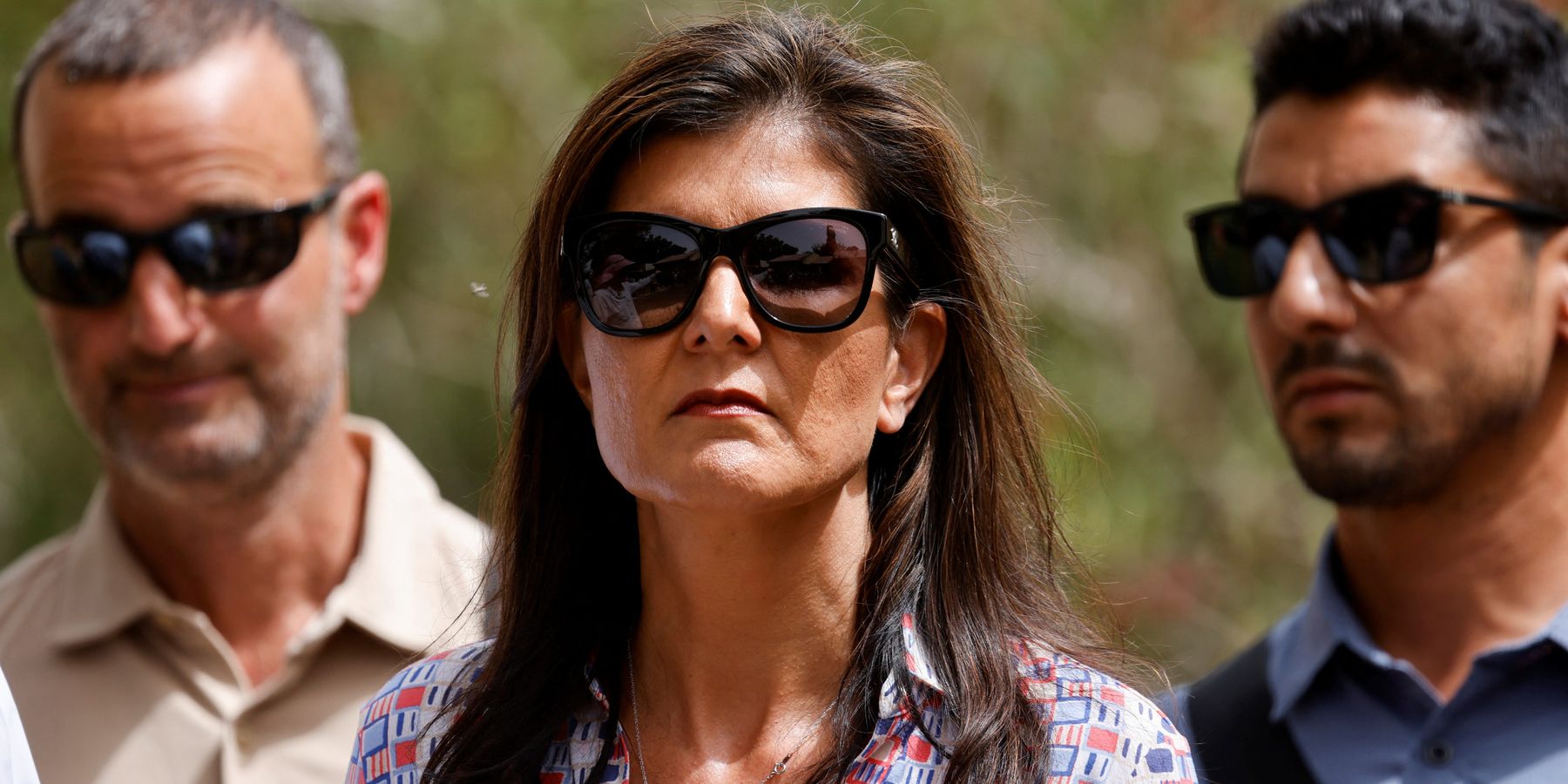While visiting Israel this week, Nikki Haley crouched down with a purple pen in her hand and wrote “Finish Them!” on an artillery shell.
While we cannot get into her head, we’re sure by “them,” she meant Hamas, which is understandable given that group’s terrorist attack on Israel on October 7. She said as much during a subsequent interview: “We know as long as Hamas exists, it can happen again, and that’s why I’ve said from the very beginning, you need to finish them — once and for all,” she said.
But Israel’s weapons (most of the them supplied by the United States) used against “them” have also killed thousands of innocent civilians, indiscriminately, in the Gaza Strip. Uncounted more are still under the rubble, caused by nearly constant airstrikes and drone attacks throughout the 141 square mile territory, over the span of six months. Some 62 percent of homes have been completely destroyed and 84 percent of hospitals and health facilities, as of early April. Haley’s dark autograph came just days after Israel was roundly condemned internationally for striking a tent camp for displaced Palestinians, killing 45 people and wounding 249.
Amnesty International posted on X in response to Haley, “Conflict is no place for stunts. Conflict has rules. Civilians must be protected.”
Democratic Congressman Jamal Bowman of New York went much further, telling CNN, “She's a disgusting human being to do that. That's genocidal language… Nikki Haley should be ashamed of herself.”
Influencer Wajahit Ali said on TikTok, “If you think that Biden and Democrats are terrible on Gaza — I think they’ve been terrible — just know Republicans will be far, far worse, and I give you Nikki Haley.”
Something as serious as war “is no place for stunts” and considering the astronomical civilian casualty rates, it is no surprise that Haley's language, plastered across a bomb ostensibly to be used in densely populated centers such as Rafah and its environs, has struck some as “genocidal."
Ali’s insistence that Republicans would be “far, far worse” regarding America’s Israel policy is also true. In part.
It just depends on what kind of Republican.
Haley is the former governor of South Carolina and the former ambassador to the United Nations under President Donald Trump. She is also arguably the most relevant high profile neoconservative right now. If you still long for the Bush-Cheney years, think the Iraq war was the right thing to do, the Patriot Act was good policy, wonder why America hasn't invaded Iran yet, and are disappointed the U.S. is no longer in Afghanistan, Nikki Haley is for you.
These kinds of sentiments are what it meant to be a Republican in the aughts. They defined the party. In a post-Trump Republican party, foreign policy is more of a debate. If “Blame America First” — a barb that conservatives would regularly hurl at Iraq war critics— might have resonated in 2004, plain old “America First” works better for many Republicans in 2024.
The word “warmonger,” whether used by the populist right of Trump or the old progressive left of Noam Chomsky, implies that waging war is a top priority for the monger. If so, any concern for unavoidable casualties that come with any war are not only not a priority, they are not even a reality at all. You pretend they don’t matter or aren’t even a factor.
You just ignore them.
When Haley writes “Finish Them” on an Israeli weapon, she is not thinking of a family being terrorized from above or a 3-year-old girl being exploded. Right now, so many more civilians are being killed by Israel’s military in Gaza than members of Hamas, drawing attention and condemnation from around the world.
But that reality doesn’t exist for Haley. Just ask her. “Israel, they’re the good guys,” she said. “And you know what I want Israelis to know? You’re doing the right thing.”
“Don’t let anybody make you feel wrong,” Haley insisted.
Writing “Finish Them” on a weapon in the midst of one of the bloodiest conflicts of our time is rightly horrifying to regular people with normal moral compasses. Where is the neoconservatives' moral compass pointing right now? Where is Nikki Haley's?
- Nikki Haley thinks China is coming for your brain ›
- Nikki Haley's 'American Strength' manifesto is more weak hawk sauce ›
















